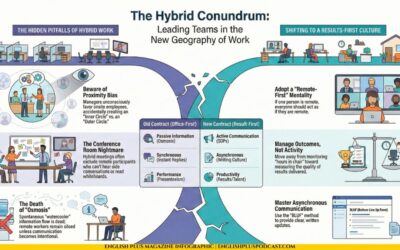- The Rise of the Gig Economy and Freelancing
- Keywords
- Key Takeaways
- Frequently Asked Questions (FAQs)
- What is the primary driving force behind the gig economy?
- Are all gig economy jobs tech-related?
- How do freelancers handle benefits like health insurance?
- Is the gig economy sustainable in the long run?
- Do co-working spaces only cater to freelancers?
- How do companies ensure quality when hiring gig workers?
- Are traditional jobs becoming obsolete?
- Is the gig economy more prevalent in certain regions or countries?
- How do gig workers handle periods without gigs?
- Are all gig workers independent by choice?
- Myth Buster
- Myth: Only younger generations are part of the gig economy.
- Myth: Gig economy jobs aren’t “real” jobs.
- Myth: All gig workers are financially unstable.
- Myth: Gig economy means only tech platforms like Uber and Airbnb.
- Myth: Companies cannot rely on freelancers for core operations.
- Myth: Remote work and freelancing are the same.
- Myth: Freelancers have a lot of free time.
- Myth: Co-working spaces are just about renting a desk.
- Myth: Traditional jobs offer more security than gig work.
- Myth: The gig economy is a short-term trend.
The Rise of the Gig Economy and Freelancing
In a bustling café in Berlin, Clara closes another design project for a client in Singapore. Across the Atlantic, in a quiet New York suburb, Raj ends a consultation call with a startup in Nairobi. Miles and time zones apart, Clara and Raj share a common thread: they’re both riding the wave of the gig economy and freelancing, a force reshaping the contours of modern work.
Picture the 1950s. The archetype of success often meant a lifelong job, typically in a large firm, with retirement benefits to look forward to. Fast forward to today, and the narrative is evolving. The job for life is becoming rarer, replaced by short-term contracts, freelance gigs, and a thirst for autonomy and flexibility.
Take Uber, for instance. It’s not just an app that gets you from point A to B but a symbol of the gig economy. Traditional taxi services, with their rigid structures, were disrupted by a platform where drivers had the freedom to ‘log in’ as they wished, earning based on their schedules. While it birthed a convenience revolution for riders, for drivers, it epitomized the freedom (and the challenges) of gig work.
But why this shift? Why are people like Clara and Raj choosing gigs over the 9-to-5 grind? For many, it’s the allure of autonomy. The ability to choose projects aligns with one’s passion, dictate one’s hours, and the liberty to work from anywhere. The digital revolution played a part, with platforms like Upwork and Fiverr bridging freelancers with clients across the globe.
The story of Airbnb is another emblematic example. Homeowners turned their idle assets, their homes, into income sources. Travelers, on the other hand, got authentic local experiences. This peer-to-peer model, sidestepping traditional hotel chains, is a testament to the power and appeal of the gig model.
However, it’s not just about large platforms. Small businesses are also tapping into the freelance goldmine. Instead of having a full-time graphic designer on payroll, they might commission freelancers for specific projects, ensuring fresh perspectives and cost efficiencies.
Yet, with its perks, the gig economy brings challenges. Ask Jake, a freelance writer who juggles multiple projects. While he relishes the freedom, he often laments the unpredictability of income and the absence of traditional benefits like health insurance. The story isn’t unique to Jake. Many freelancers tread the tightrope of enjoying flexibility while managing financial volatility.
The rise of co-working spaces, like WeWork, is a direct response to the freelancing boom. These spaces offer freelancers networking opportunities, a sense of community, and a structured workspace, addressing some of the isolation freelancers may feel.
On the corporate front, the gig model offers agility. In a rapidly changing market landscape, the ability to onboard specialists for short-term projects allows companies to remain nimble and innovate faster. Take, for example, the tech industry. When a new programming language emerges, instead of investing in long-term training, companies can hire gig-based experts, ensuring they remain at the cutting edge.
Economies too are taking note. Governments are grappling with regulations to ensure gig workers aren’t left vulnerable. In places like California, legislation aims to provide gig workers with employment benefits, a move met with both applause and apprehension.
Moreover, with the rise of remote work, especially post-pandemic, the lines between traditional employment and freelancing blur further. Companies previously hesitant about remote work have now tasted its potential, with some considering hybrid models – a fusion of traditional, remote, and gig work.
As we pull back and gaze at the tapestry of work today, it’s evident that the threads of the gig economy and freelancing are woven deep. They’ve ushered in an era where work is no longer tethered to cubicles or clock-in times. It’s more fluid, flexible, and, in many ways, liberating. The stories of Clara, Raj, Jake, and countless others stand testimony to this seismic shift. As businesses, workers, and economies navigate this new frontier, one thing’s certain: the world of work, as we know it, is being redefined, one gig at a time.
Keywords
- Gig Economy: A labor market characterized by short-term contracts or freelance work as opposed to permanent jobs.
- Freelancing: Working for different companies at different times rather than being permanently employed by one company.
- Autonomy: The right or condition of self-governing; in this context, refers to the freedom and flexibility that freelancers and gig workers often seek.
- Upwork/Fiverr: Online platforms that connect freelancers with potential clients or employers.
- Airbnb: A peer-to-peer service for people to list, discover, and book accommodations around the world.
- Co-working Spaces: Shared workspaces where freelancers, remote workers, and others can rent desks or offices, often providing networking opportunities.
- WeWork: A prominent company providing co-working space solutions.
- Remote Work: A working style that allows professionals to work outside of a traditional office environment.
- Hybrid Models: A blend of traditional, remote, and gig work employment structures.
- Regulations: Rules or directives made and maintained by an authority, in this context, relating to the gig economy and its workers.
Key Takeaways
- The gig economy and freelancing represent a shift from traditional permanent jobs to more flexible work structures.
- Digital platforms like Uber, Airbnb, Upwork, and Fiverr exemplify the gig economy model.
- Freelancers value autonomy, choosing projects, and working from anywhere.
- Despite its advantages, freelancing presents challenges like income unpredictability and lack of traditional benefits.
- Co-working spaces like WeWork offer a community and structured workspace for freelancers.
- Companies benefit from the gig economy by hiring specialists for short-term projects.
- The pandemic accelerated the acceptance of remote work, further blurring lines between traditional employment and freelancing.
- Governments and regulations are evolving to cater to the needs of gig workers.
- The world of work is undergoing a significant transformation, with a move towards more fluid and flexible structures.
- The rise of the gig economy signals a redefinition of work norms and practices.
Frequently Asked Questions (FAQs)
What is the primary driving force behind the gig economy?
The primary force is the desire for flexibility and autonomy in work, along with advancements in technology that facilitate such working styles.
Are all gig economy jobs tech-related?
No, while many gig jobs are facilitated by tech platforms, they span a range of industries from driving and deliveries to writing and graphic design.
How do freelancers handle benefits like health insurance?
Many freelancers purchase individual health insurance plans, join freelancer unions or associations that offer benefits, or rely on a spouse’s employer-provided plan.
Is the gig economy sustainable in the long run?
It’s sustainable for certain professions and individuals, especially if regulations evolve to offer better protection and benefits to gig workers.
Do co-working spaces only cater to freelancers?
No, co-working spaces also host startups, remote teams, and even branches of large corporations.
How do companies ensure quality when hiring gig workers?
Through reviews, ratings, and feedback systems on platforms, trial projects, and rigorous vetting processes.
Are traditional jobs becoming obsolete?
Not obsolete, but there’s a notable shift in the balance with more people and companies embracing flexible work models.
Is the gig economy more prevalent in certain regions or countries?
It’s a global phenomenon, but its prominence might vary based on economic conditions, regulations, and cultural factors.
How do gig workers handle periods without gigs?
Many maintain emergency funds, diversify income streams, or engage in continuous skill upgradation to remain competitive.
Are all gig workers independent by choice?
Not always. Some might prefer traditional employment but resort to gig work due to economic conditions or lack of full-time opportunities.
Myth Buster
Myth: Only younger generations are part of the gig economy.
Reality: People of all ages, from various backgrounds, are participating in the gig economy, driven by diverse reasons.
Myth: Gig economy jobs aren’t “real” jobs.
Reality: They provide significant income and opportunities for many, and for some, it’s their primary profession.
Myth: All gig workers are financially unstable.
Reality: While some face income volatility, many earn substantial incomes and manage their finances strategically.
Myth: Gig economy means only tech platforms like Uber and Airbnb.
Reality: It spans various sectors, from teaching and consulting to writing and design.
Myth: Companies cannot rely on freelancers for core operations.
Reality: Many companies, especially startups, rely heavily on freelancers for critical tasks, benefiting from expertise without long-term commitments.
Myth: Remote work and freelancing are the same.
Reality: While both offer flexibility, remote work often implies regular employment with a company, while freelancing usually means working with multiple clients.
Myth: Freelancers have a lot of free time.
Reality: Many freelancers work extended hours, juggling multiple clients and projects, and managing all aspects of their business.
Myth: Co-working spaces are just about renting a desk.
Reality: They offer community, networking, resources, and sometimes even training and mentorship.
Myth: Traditional jobs offer more security than gig work.
Reality: While traditional jobs might offer benefits and steady paychecks, economic changes mean even these jobs aren’t always secure. Gig work, on the other hand, offers diversification of income sources.
Myth: The gig economy is a short-term trend.
Reality: Indicators suggest it’s a fundamental shift in the way we think about work, driven by deeper economic, technological, and societal changes.










0 Comments
Trackbacks/Pingbacks